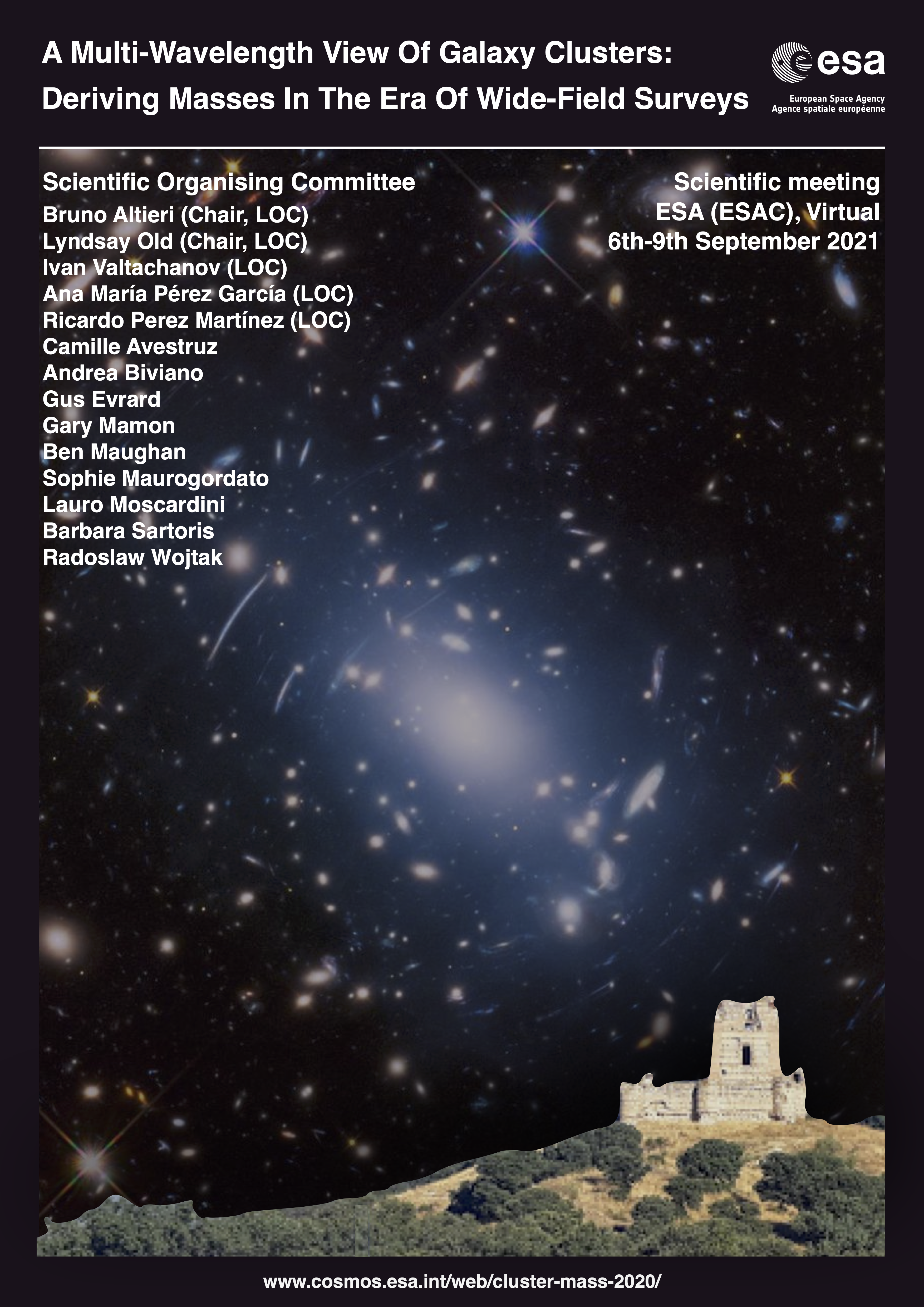Home - Cluster Mass 2020

Meeting re-scheduled to 6th-9th SEPTEMBER 2021 @ 15:30-19:30 CET (virtual)
Meeting rationale
Powerful new galaxy surveys Euclid, The Dark Energy Survey, eROSITA and LSST offer outstanding potential for both cluster cosmology and galaxy evolution. With these wide-field surveys across a variety of wavelengths and redshifts, we are moving into an era where samples of hundreds of thousands of galaxy clusters will be available. While these large samples enable the reduction of statistical uncertainties in our measurements, developments in modelling both our observations and theoretical understanding of galaxy clusters is crucial to the success of these surveys.
The aim of this meeting is to bring together observers and theorists to discuss recent results and future prospects for deriving cluster masses in light of current and upcoming wide-field surveys.
Meeting themes
This will be a small-medium sized meeting with oral and poster contributions alongside discussion sessions covering the following themes:
Theme 1: observational measurements & progress on:
- Galaxy cluster masses derived from galaxies
- Galaxy cluster masses derived from gravitational lensing
- Galaxy cluster masses derived from X-rays
- Galaxy cluster masses derived from the Sunyaev-Zeldovich effect
- Machine learning applications to galaxy cluster mass estimation techniques
(Subthemes are inclusive of multi-wavelength comparisons).
Theme 2: galaxy cluster detection & mass estimation in the context of upcoming surveys (e.g., Euclid, eROSITA, Vera C. Rubin Observatory, JWST, Simons Observatory, CMB-S4, Athena, Lynx).
Theme 3: a view from galaxy cluster simulations (dark matter-only, hydrodynamical, synthetic skies etc.).
Theme 4: statistical challenges in galaxy cluster cosmology.
Registration & logistics
The virtual meeting will be held at 15:30-19:30 CET on 6th-9th September 2021. To facilitate participation across different time zones, it will be possible to pre-record presentations. All presentations will be recorded and uploaded as soon as possible for viewing by participants during the meeting. Connection details will be provided nearer the time of the meeting.
There will be no registration fee for this meeting.
We acknowledge support from the Faculty of the European Space Astronomy Centre (ESAC).
- Removed a total of (27) style text-align:justify;








































 Sign in
Sign in
 Science & Technology
Science & Technology